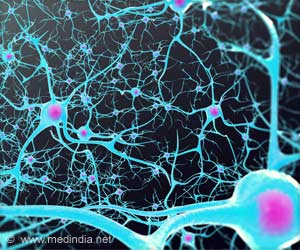High levels of Alzheimer's disease biomarkers – Tau and amyloid, discovered in the brain tissue of patients with Down syndrome can aid in the development of early therapeutics.

‘High levels of Alzheimer's disease biomarkers– Tau and amyloid, discovered in the brain tissue of patients with Down syndrome can aid in the development of early therapeutics. This would offer a better understanding of the cognitive deficits thereby improving their quality of life.
’





"Previous studies of Down's syndrome by our group and others have been able to demonstrate that pathological forms of amyloid and tau can appear years before someone shows signs of dementia," says Lotta Granholm, professor at Karolinska Institutet and the University of Denver, and one of the paper's principal authors.Tau Tracers:
The research team compared the brain tissue of individuals having Down syndrome with or without AD and also of Alzheimer’s patients without other disabilities.
Analysis of binding capacity of two Tau PET tracers (3H-MK6240 and 3H-THK5117) and one amyloid (3H-PIB) ligand were done in specific brain areas – medial frontal gyrus (MFG) and hippocampus (HIPP).
It was noted that " apart from a high level of tau, we also measured a different regional distribution of tau in the brains of people with Down syndrome and Alzheimer's disease compared to the control group," the paper's first author Laetitia Lemoine, assistant professor at the Department of Neurobiology, Care Sciences and Society, Karolinska Institutet.
Advertisement
Source-Medindia










